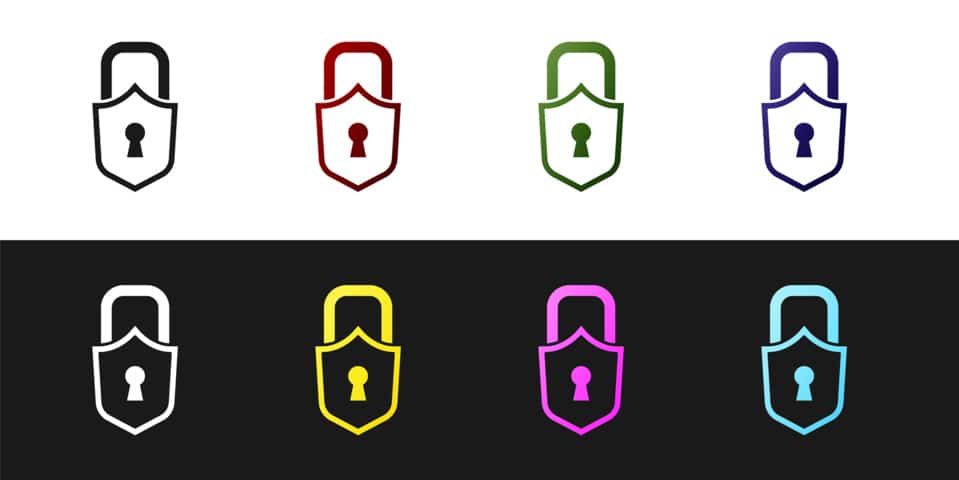Cyber security sales is a rapidly growing field that offers lucrative opportunities for those with the right skills. With cybercrime on the rise, organizations around the world are increasingly investing in solutions to protect their data and systems from malicious actors. As such, there has been a steady increase in demand for skilled professionals who can help organizations secure their networks and assets. According to IDC Spending Guide, global spending on information security products and services will reach $300 billion USD by 2026.
In this article, we’ll cover everything you need to know about working as a cyber security salesperson – from what it entails to how much money you could make from it. We’ll explore job duties and responsibilities, educational requirements, salary expectations, career prospects, and more! So if you’re considering this line of work or just curious about what’s involved in the role, then read on!
What Is Cyber Security?
Cyber Security is about protecting computers, networks, and data from harm. It involves finding ways to stop hackers from stealing information or damaging systems. Cyber Security also includes creating procedures to protect data and making sure that security measures are up-to-date. It’s important for people to understand how they can keep their own data safe, as well as the data of any company or organization they work with. Cyber Security is an important job because it helps keep everyone safe online.

What Does a Cyber Security Salesperson Do?
A cyber security salesperson’s job is to sell products and services that help protect against cyber threats. This could include firewalls, antivirus software, encryption solutions, or other security-related products. The salesperson must be knowledgeable about the company’s offerings and able to explain how they work in order to make a sale. Additionally, they must be able to identify potential customers and build relationships with them. This might involve visiting their business or hosting events to educate them about cybersecurity solutions.

Top 10 Traits Of A Cyber Security Salesperson
If working in cybersecurity sounds like the job for you, then it’s important to know what traits make the best cybersecurity salesperson. Here are the top 10 skills and qualities to have:
Technical Knowledge
A deep understanding of cybersecurity principles, threats, and solutions is essential. This knowledge allows the salesperson to confidently and accurately discuss the benefits of their products or services with potential clients. Even if you aren’t familiar with the specific product, you’ll likely go through a training period and should at least be comfortable with the basics of cybersecurity.
Communication Skills
Effective communication is key in any sales position. A good cybersecurity salesperson can clearly articulate complex information in a manner that’s easy for clients to understand, whether they’re tech-savvy or not. For example, you might need to explain the benefits of a certain encryption solution or how data backup solutions can help protect clients from cyber threats.
Curiosity
The cybersecurity landscape is constantly changing. A successful salesperson in this field exhibits a strong desire to learn and stay updated on new threats, solutions, and industry trends. For example, you might want to read up on the latest news in the cybersecurity industry or look into new products that have just been released.
Problem-Solving Abilities
Every client has unique security needs. The ability to quickly analyze a situation and identify the right solution is a valuable trait in a cybersecurity salesperson. For example, you may be working with a client whose system has recently been breached. You must be able to quickly analyze the situation and provide solutions that will help them secure their data while also ensuring they are compliant with regulations such as GDPR or HIPAA.
Resilience
Sales involve facing rejection and overcoming obstacles. A resilient salesperson doesn’t get discouraged easily; they learn from their mistakes and keep pushing forward. If you’re uncomfortable with the idea of facing rejection and uncertainty, then this field might not be for you.
Empathy
Understanding and addressing a client’s concerns is critical. Empathy allows a salesperson to build strong relationships based on trust, which can lead to long-term business partnerships. For example, you may need to listen patiently and explain complex concepts in simple terms when working with a client who’s unfamiliar with cybersecurity.
Self-Motivation
Cybersecurity salespeople often work independently, setting their own goals and managing their own time. A high level of self-motivation ensures they remain productive and focused on achieving their targets. For example, you may need to use your own initiative to research potential clients and contact them about your services.
Negotiation Skills
Being able to negotiate effectively can make the difference between closing a deal and losing a potential client. Strong negotiation skills enable a salesperson to reach agreements that satisfy both parties. For example, there may be times when a client cannot afford the full price of a service or product and needs to negotiate an alternative payment plan.
Adaptability
As the cybersecurity field evolves, so too must the sales approach. An adaptable salesperson is open to change and ready to adjust their strategies as needed. For example, if a client’s security needs have changed since you last spoke, you may need to adjust the pitch and propose new solutions.
Passion
Passion for cybersecurity not only drives a salesperson to expand their knowledge and improve their skills continuously but also shines through in their interactions with clients, making them more convincing and engaging.

Is A Cyber Security Sales Position Right For Me?
If you’re still unsure if this is the right career move, you’ll want to take a look at our article on seven signs that a sales job is not right for you. However, to sum it up:
Successful sales require the ability to close deals, differentiate potential customers from networkers, and handle rejection.
- If you’re consistently struggling with closing deals, it may be time to reflect if a sales career is right for you.
- It’s essential not to treat everyone as a potential customer; being too pushy can come off as desperate.
- In sales, rejection is common; top performers see it as a stepping stone rather than a personal attack.
- Spending too much time on unlikely prospects can reduce effectiveness, so lead qualification and communication with decision-makers are crucial.
- Frequent job hopping can hinder building credibility and long-term relationships.
- Belief in one’s work, comprehensive product knowledge, and genuine care for customers are vital for success in sales.
If these values don’t align with yours, it might be time to reconsider your career path.
How Much Does A Cyber Security Salesperson Make?
The salary for a cyber security salesperson varies depending on experience, location, and company. According to Salary, Cyber Security Sales salary ranges from $38,976 to $51,290. However, this can fluctuate depending on location, industry, and other factors. Additionally, many companies offer commissions and bonuses based on performance. This can make a big difference in earnings for those who are successful in their role.
How To Prepare For A Cyber Security Sales Career
Sales is a dynamic and rewarding career path that requires a unique blend of skills, mindset, and preparation. Here are some top ways to prepare yourself for a successful sales career.
Understanding the Basics of Sales
Before diving into a sales career, it’s crucial to grasp the fundamentals of sales. This includes understanding the sales process, such as prospecting, qualifying leads, presenting the product or service, handling objections, and closing the sale.
A good way to immerse yourself in the sales industry is by accepting an entry-level position. This allows you to gain hands-on experience and understand the intricacies of sales operations from the ground up.
Acquiring Necessary Skills
Besides understanding the sales process, there are other essential skills required for success in this field. These include:
- Developing Authenticity and Positivity: Authenticity is a cornerstone in sales. Customers appreciate genuine interactions and can often sense when a salesperson is not being authentic. Maintaining a positive attitude, even in challenging situations, can help build trust with clients and foster long-term relationships.
- Learning Sales Techniques and Principles: Studying sales principles and techniques is another essential step in preparing for a sales career. This could involve learning about different sales methodologies, negotiation tactics, and communication strategies. Online classes, books, and workshops can be excellent resources for this.
- Mastering the Art of Storytelling: Stories captivate people, and in sales, they can be a powerful tool to connect with customers emotionally. Learn to weave compelling narratives around your products or services to engage and persuade prospects effectively.
Strategic Job Application
Applying strategically for positions can increase your chances of landing a job in sales. Research companies and industries that interest you, and tailor your applications to highlight how your skills align with their needs. If this sounds too daunting, you’ll want to work with Sales Recruiters Dallas, as they can help you target the right companies and apply strategically.
Preparing for Interviews
Before any sales job interview, you’ll want to prepare yourself for an interview. Some of the easiest ways to do this include:
- Researching The Company: You’ll want to take time to research the company and its industry thoroughly. Try to understand their core values, customers, and products or services.
- Rehearsing Common Interview Questions: Take the time to prepare answers to common questions, such as why you’re interested in the job or how you’ve handled challenging clients.
- Practicing Your Pitch: If asked, be prepared to give a short pitch about yourself and why you’d make a great fit for the job.
- Connecting With People Who Have Been In Your Shoes: Reach out and connect with people who have been in your position before. Ask for advice or even a mock interview to help you get ready.
Continuous Learning and Improvement
Once you’ve landed a sales job, the journey doesn’t end there. The sales landscape is constantly evolving, so it’s important to stay updated with industry trends and continually hone your skills. This may include doing online courses, attending seminars, and networking with industry professionals.
Conclusion
Preparing for a sales career requires a mix of acquiring the right skills, understanding the sales process, strategic job application, and continuous learning. By focusing on these areas, you can set yourself up for a successful career in sales.
If you’re looking for your next career in sales but don’t know where to start, you’ll want to work with Sales Recruiters Dallas. They’ll help you target the right companies and apply strategically so that you can focus on what matters most— mastering your craft. Learn more about us here

